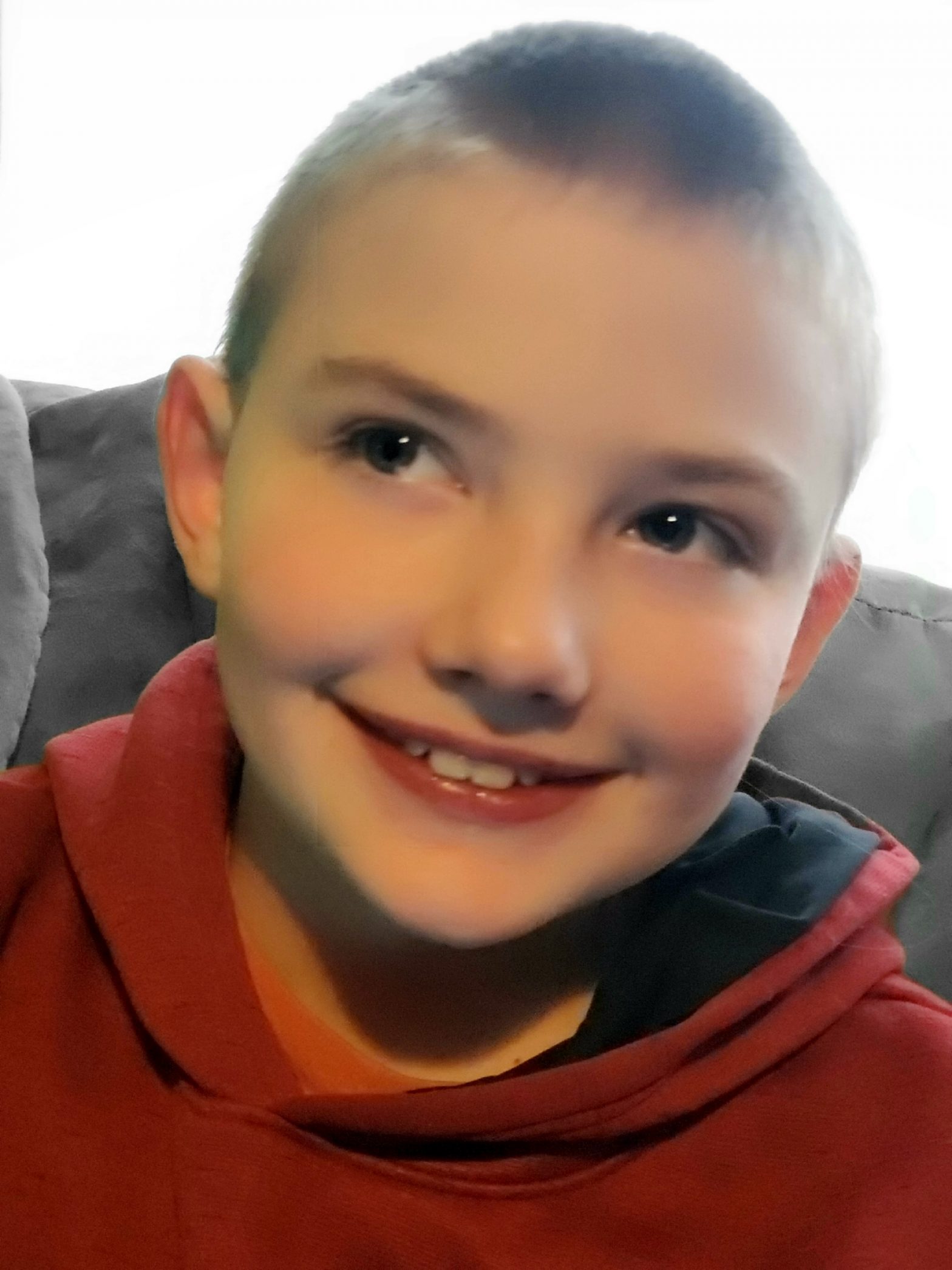The story of Lacy
Jacob first showed signs of delays when he was about 16 months old. We started taking him to different doctors and found therapies for him. In 2016, at age 6, he was diagnosed with Intellectual Delay and Speech Apraxia. The therapies didn’t change much but at least we had an answer. A few months after that we added another diagnosis—he now had Epilepsy. The neurologists couldn’t explain why he was having seizures but knew it wasn’t just a fluke. We started him on medicine to prevent seizures and ran many tests. He had CT scans, EEGs, and MRIs. The MRI showed a delay in myelination. At the time, it didn’t mean anything because we didn’t have a reference for it. We finally did genetic testing. The second test gave us a final answer: Jacob was diagnosed with Creatine Transporter Deficiency (CTD) in the fall of 2017. It is one of three Cerebral Creatine Deficiency Syndromes (CCDS). CTD is a mutation of the SLC6A8 gene. It causes the creatine that Jacob’s body produces to not be transported to his brain. This is a very rare disorder with only about 500 cases worldwide. The delays, apraxia, seizures, and delay in myelination in the brain are all related to CTD.
At this time there is no proven treatment for CTD. It was suggested that we try creatine supplements, but research has not proven that it will help, as the creatine still can’t pass to the brain. However, there is some anecdotal evidence that supplements could have long-term benefits. In Jacob’s case, the supplements, along with seizure medication, seem to be helping. His seizures are controlled for now. We have also seen some progress in his development. We have a long road ahead of us, but we have come so far that I am hopeful for the future.
There is a lot of excellent research being done all over the world to try to find a cure or treatment. The Association for Creatine Deficiencies (ACD) has done a great job of bringing doctors, researchers, and families together. An example of this is that ACD is currently working on a patient portal that will be launching soon. This will bring all patient data together in one place and will be a valuable tool for doctors and researchers for advancements in diagnosis and treatments. ACD’s mission is to provide patient, family, and public education, to advocate for early diagnoses, and to promote and fund medical research for treatments and cures for Cerebral Creatine Deficiency Syndromes. Jacob is currently involved in a research study where we travel to the site every six months for them to observe him and take data. This is currently a natural history study for males with CTD. It is our hope that a drug trial will be available later this year or early next year. We feel it is important to help with research so that some day there may be a treatment.
